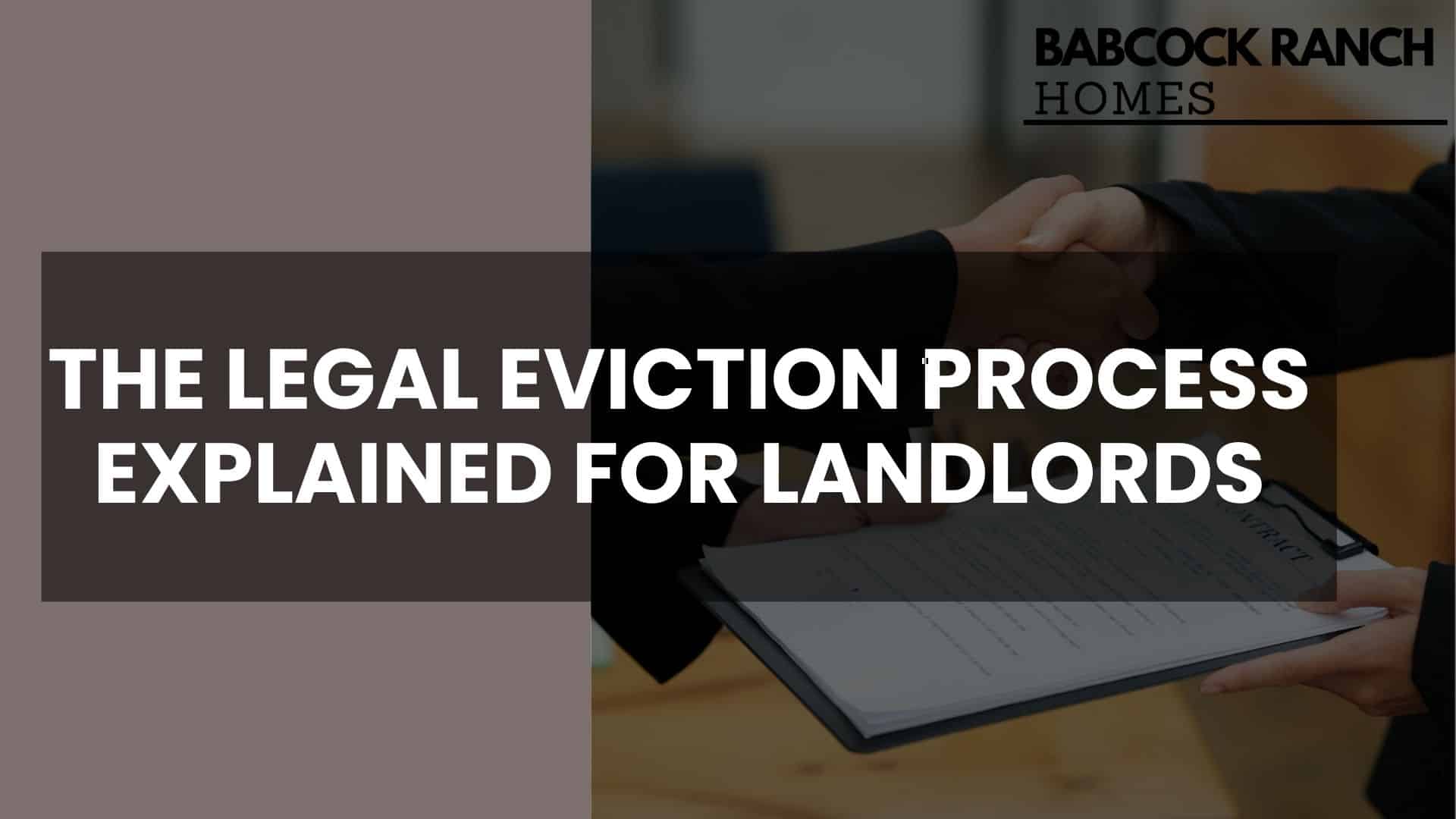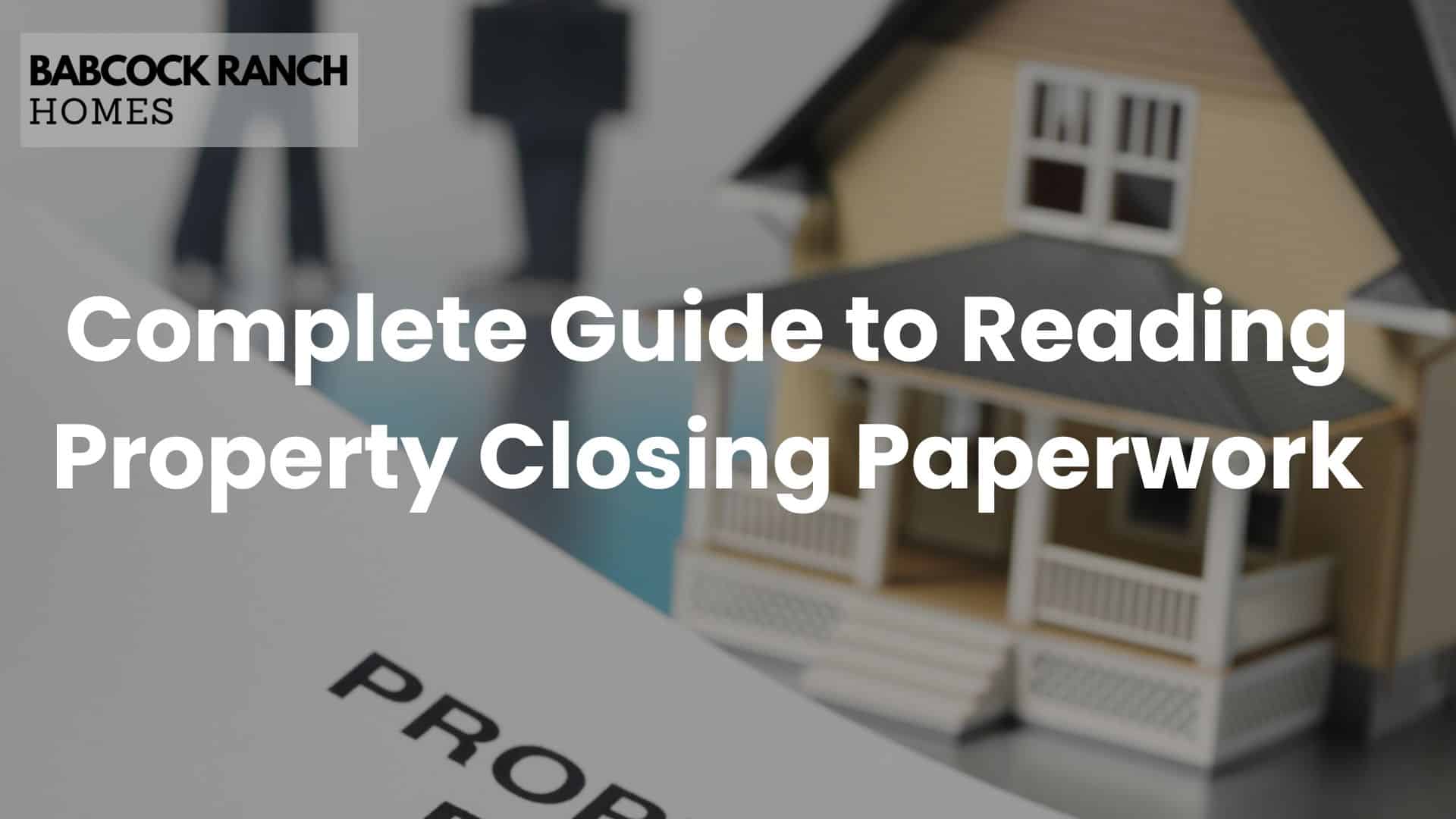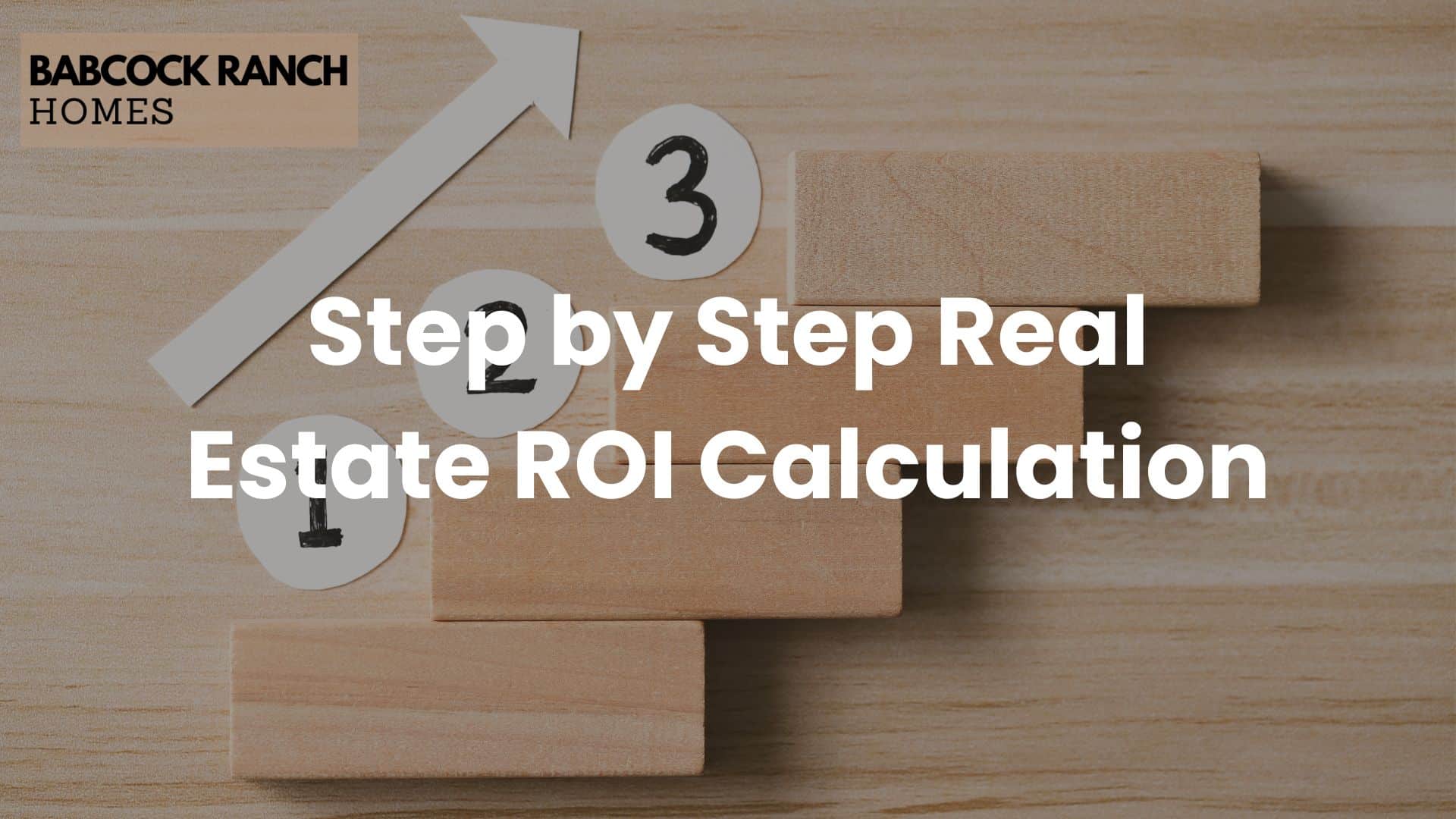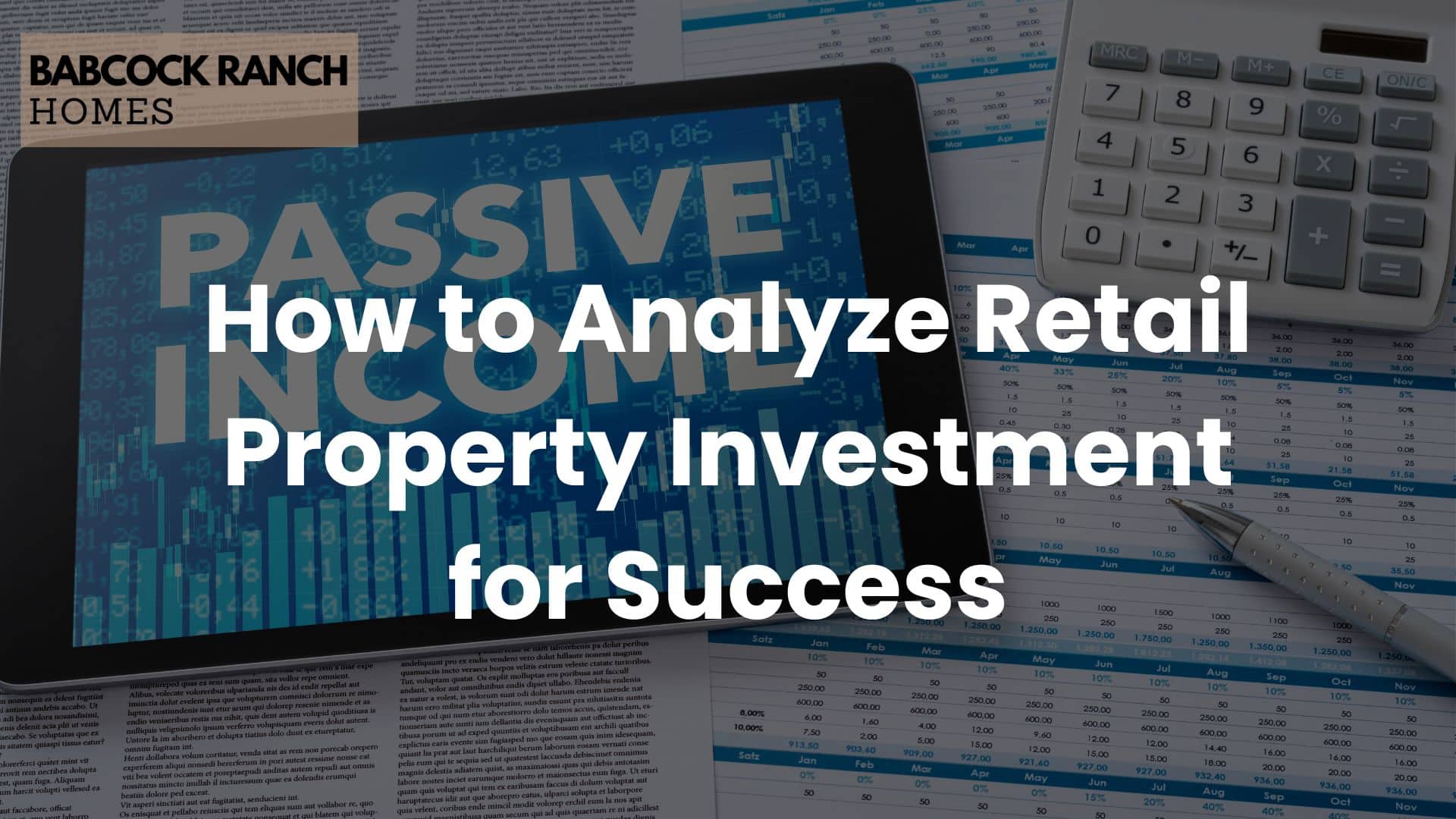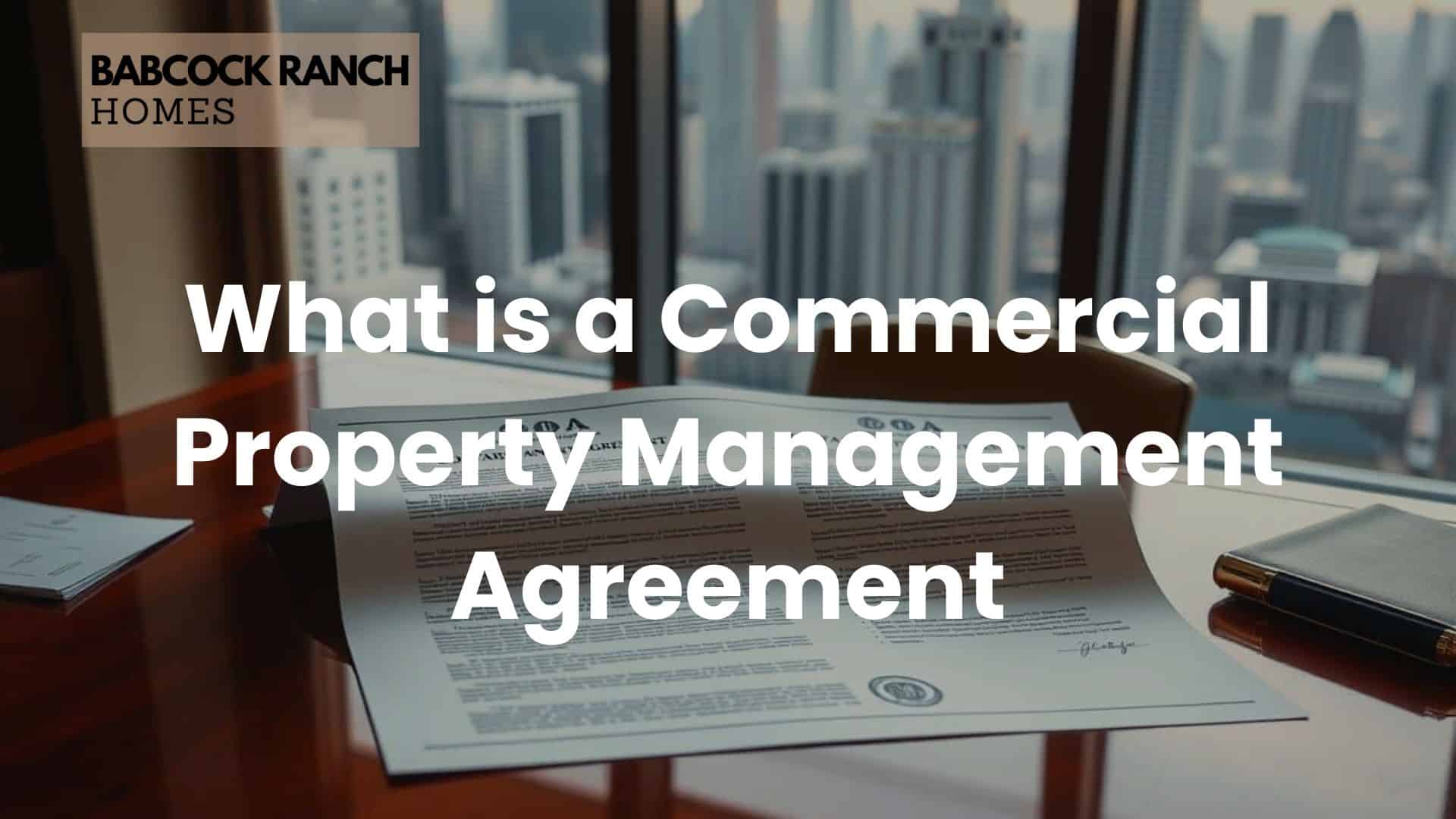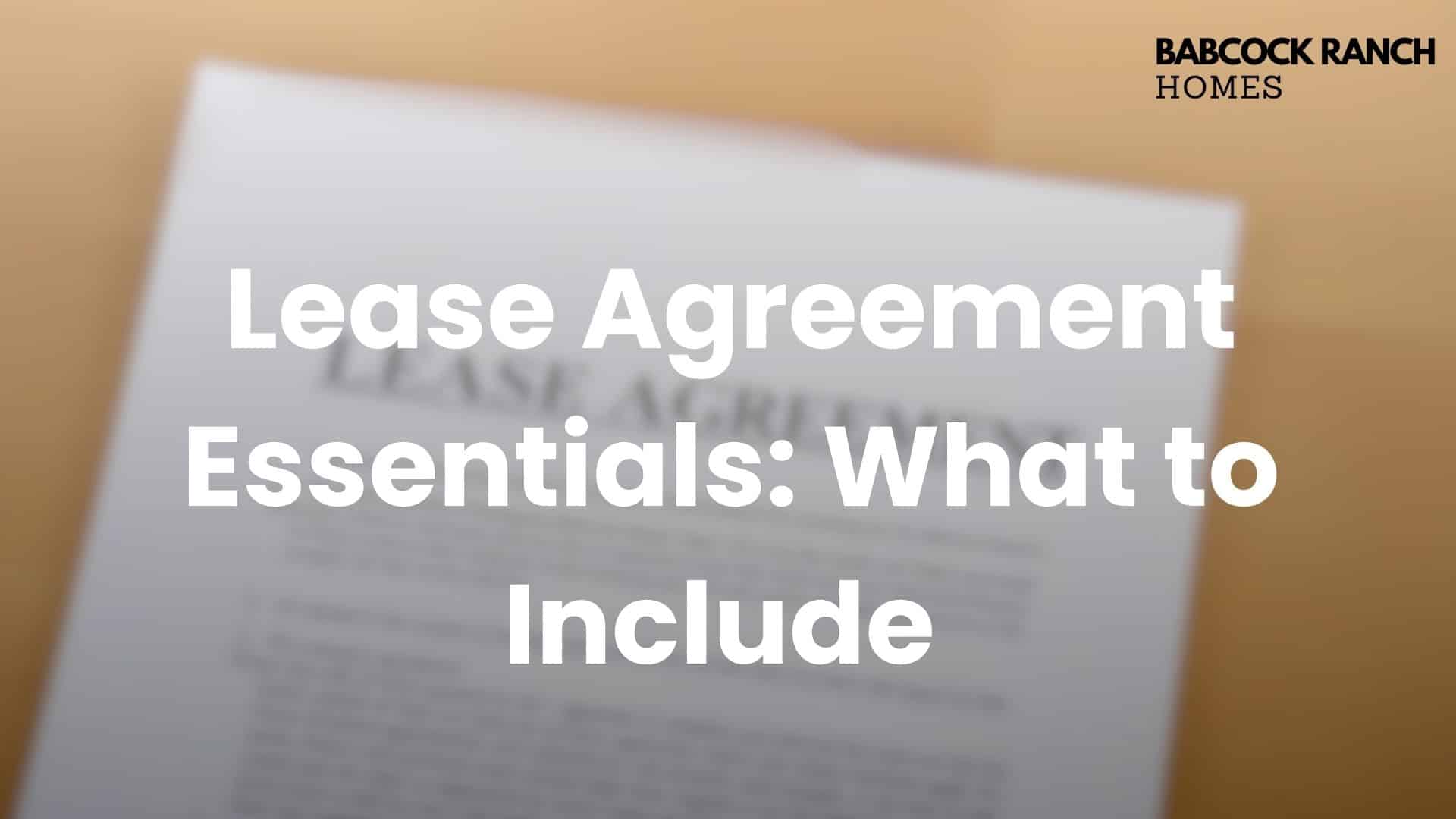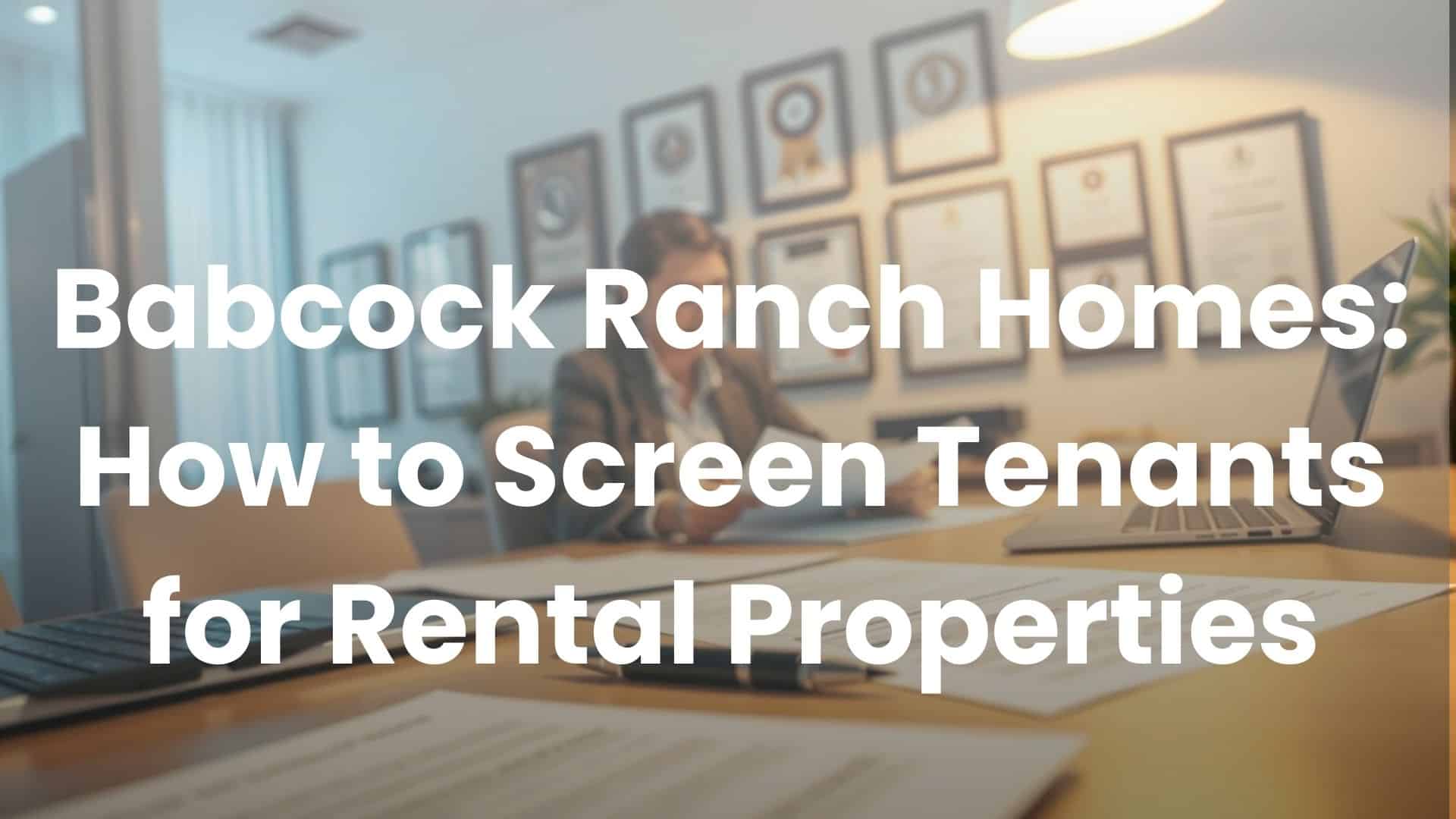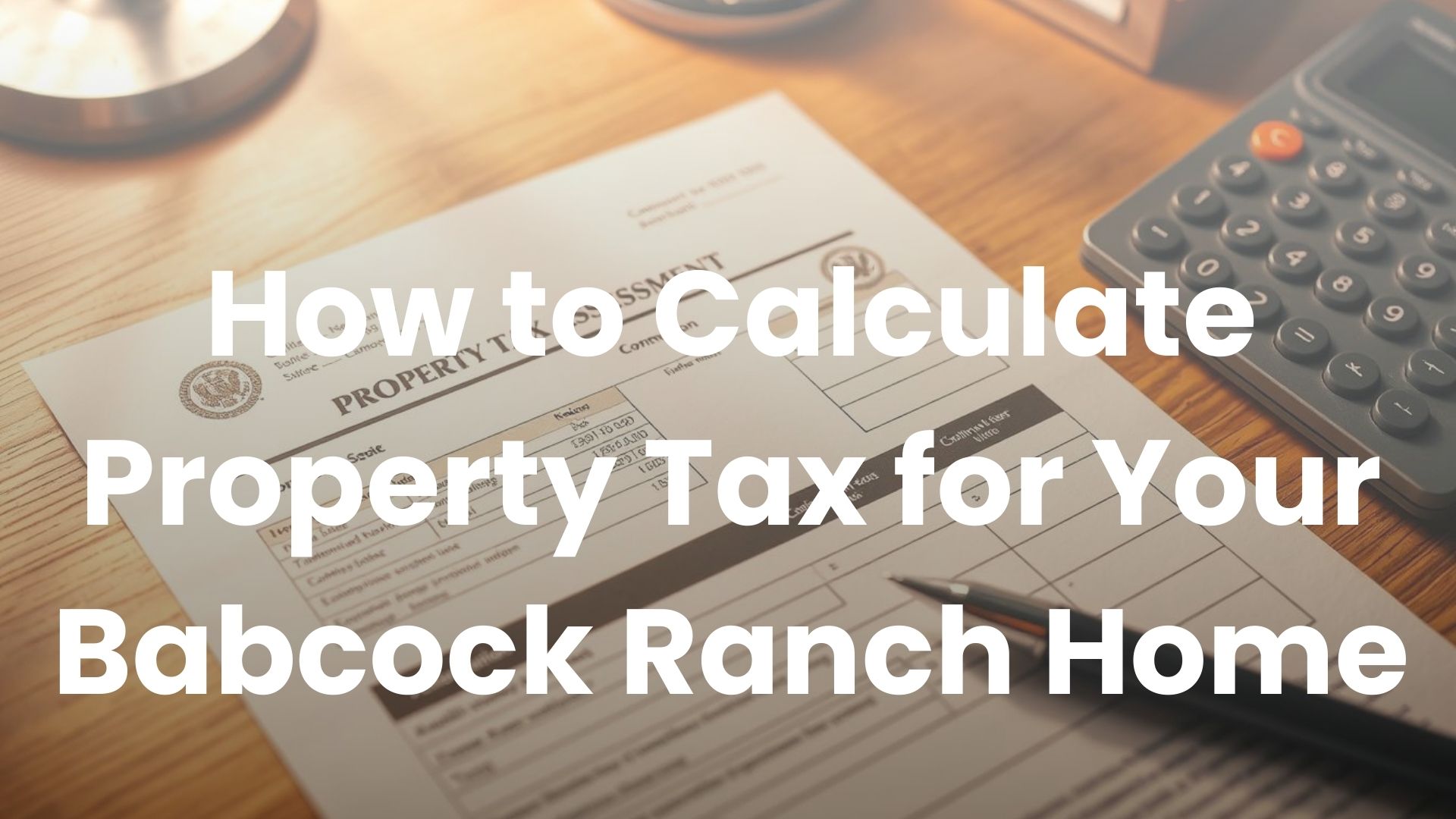Welcome to our detailed guide on real estate investing for 2025. The real estate market is always changing. At Babcock Ranch Homes, we’re here to help new investors get started in property investment.
Bankrate’s 2025 Long-Term Investments Survey shows that 24 percent of Americans now see real estate as their top investment. This trend highlights the strong financial growth that property investments can offer.
Real estate investing can lead to financial growth in many ways. Rental properties can grow at 3-4% each year. There are also chances for profit through smart investments. Beginners can look into different options like homes, REITs, and new investment platforms.
Key Takeaways
- Real estate remains a top long-term investment strategy in 2025
- Multiple entry points exist for new investors with varying capital
- Property appreciation can provide substantial long-term returns
- Diversification is key in real estate investment approaches
- Getting professional advice can help reduce investment risks
Understanding Real Estate Market Trends 2025
The real estate market in 2025 is full of challenges and chances for investors and buyers. Recent data shows big changes in property values, mortgage rates, and market trends. These changes are key to understanding the current real estate trends in 2025.
Insights into the real estate market forecast for 2025 show a complex economic scene. Mortgage rates have settled around 7%, making for a unique investment scene. The national median resale home price has gone up 4.8% to $396,900, showing the market’s strength.
Current Market Statistics
The U.S. housing market in 2025 has several important traits:
- Home prices rose by 3.9% annually in December 2024
- Existing home sales fell 4.9% in January 2025
- There’s a 3.5-month supply of existing homes
Interest Rate Impact on Property Values
Interest rates are key in shaping property values. A typical home in January 2025 costs about $355,000, with monthly mortgage payments of $1,879 at a 6.95% rate. The big jump in monthly payments is a big deal for buyers.
| Market Indicator | 2025 Value | Change |
|---|---|---|
| Median Home Price | $396,900 | +4.8% |
| Mortgage Rate | 6.95% | Stabilizing |
| Monthly Mortgage Payment | $1,879 | +$95 from 2024 |
Regional Market Analysis
Regional differences are big in the 2025 real estate scene. Builder confidence has dropped, with more seeing tough market times ahead. Housing starts for single-family homes fell 8.4% month-over-month in January 2025, hinting at cooling in some areas.
Real Estate Investing for Beginners 2025: Essential Steps

Starting a property investment journey needs careful planning. The beginner’s real estate investing strategies for 2025 aim to lay a strong foundation for financial growth.
Those new to real estate should take these important steps:
- Assess Personal Financial Readiness
- Review current financial situation
- Determine investment budget
- Check credit score
- Define Clear Investment Goals
- Short-term income generation
- Long-term property appreciation
- Retirement planning strategy
- Research Investment Options
- Rental properties
- Real Estate Investment Trusts (REITs)
- House flipping
The 2025 property investment guide stresses the importance of understanding the market. Real estate investment is projected to be a leading avenue for financial success. With average property appreciation rates around 3-4% annually, a $150,000 rental property could reach $486,000 in value over 30 years.
Successful real estate investing begins with knowledge, careful planning, and a willingness to learn and adapt.
Beginners should focus on minimizing risks and understanding local market trends. They should also develop a detailed investment strategy that matches their financial goals.
Types of Real Estate Investments Available
Real estate investment offers many chances for beginners to grow their wealth in 2025. You can pick from homes, commercial buildings, and more. Each choice fits different financial goals and risk levels.
The world of commercial real estate for newbies has grown. It now offers many ways to start. Each option has its own benefits and possible earnings.
Residential Properties
Residential real estate is a favorite for those looking to invest in affordable housing. Popular strategies include:
- Single-family homes
- Multi-unit properties
- Condominiums
- House hacking
Millennials now make up 38 percent of homebuyers. This shows a bright future for investing in homes.
Commercial Real Estate
Commercial real estate is great for those wanting a diverse portfolio. New trends include:
- Mixed-use developments
- Flexible office spaces
- Retail properties
- Industrial warehouses
Investors are looking for properties with green features and flexible spaces.
REITs and Online Platforms
For those new to investing, REITs and online platforms are good starting points. Real estate investment trusts (REITs) let you invest without managing properties yourself.
| Investment Platform | Minimum Investment | Annual Management Fees |
|---|---|---|
| Online Real Estate Platforms | $500 – $25,000 | Approximately 1% |
| REITs | Price of a single share | 0.5% – 1.5% |
With virtual reality tours and AI property analysis, investing in 2025 is more accessible and insightful for beginners.
Building Your Investment Strategy

Creating a solid real estate investing plan needs careful thought and strategy. For newbies in 2025, knowing the main investment methods is key to success.
Good beginner strategies include:
- Setting clear financial goals
- Assessing personal risk tolerance
- Creating a diversified investment portfolio
- Understanding market dynamics
Investors should look at important metrics for success. Cash flow, appreciation, and tax benefits are vital for beginners in 2025.
Experts suggest checking these key indicators:
- Cap rates
- Gross rent multiplier
- Net operating income
- Cash-on-cash return
First investments might need a down payment of 3.5% to 20% of the property’s price. Keeping an emergency fund of 3-6 months’ expenses is also wise.
Smart investors see real estate as a long-term wealth builder, not a quick way to riches.
Look into different investments like rental homes, REITs, and house hacking. This can help grow your investment.
Property Valuation Techniques
Understanding property valuation is key for real estate investing in 2025. Investors need to know how to accurately value properties. This helps them make smart investment choices. The property investment guide shows three main ways to figure out a property’s worth.
Getting property valuation right is important. It helps investors find good deals and avoid risks. By learning these methods, new investors can plan their real estate strategy better.
Market Comparison Approach
The market comparison approach looks at recent sales of similar properties. Investors check:
- Recent sale prices of similar properties
- Property characteristics and features
- Location-specific market trends
- Unique property attributes
Income Capitalization Method
This method looks at a property’s income. It considers:
- Net Operating Income (NOI)
- Capitalization rates (usually 6% to 14%)
- Potential rental income
- Operating expenses
Example: A property making $1 million in NOI at a 14% cap rate would be worth about $7.14 million.
Cost Approach Analysis
The cost approach values a property by how much it would cost to build a similar one. It looks at:
- Land value
- Construction costs
- Depreciation
- Replacement expenses
Real estate investing in 2025 needs a deep understanding of these methods. By learning them, investors can make better, more informed choices.
Financing Options and Mortgage Rates

For beginners in real estate investing in 2025, understanding financing is key. The mortgage world offers both hurdles and chances for those looking to invest in affordable housing.
Knowing about mortgage rates and loan rules can shape your investment plan. In 2025, the financing scene is complex, with clear rules for buying properties.
Key Financing Considerations
- Investment property mortgage rates are 0.50% to 0.75% higher than regular rates
- Down payments for investment properties are 15% to 25%
- A minimum credit score of 680 is needed for good loan terms
Mortgage Rate Overview
| Property Type | Interest Rate Range | Down Payment |
|---|---|---|
| Single-Unit Investment Property | 7.0% – 7.25% | 15-20% |
| Multi-Unit Property (2-4 units) | 7.375% – 7.75% | 20-25% |
Investors should get ready for tighter lending rules in 2025. Lenders will look closely at credit scores, debt-to-income ratios, and cash reserves.
Loan Options for Real Estate Investors
- Conventional loans
- FHA loans (for owner-occupied multi-unit properties)
- Portfolio loans
- Hard money loans
- DSCR (Debt Service Coverage Ratio) loans
To get financing, investors need to be well-prepared. They should work on their credit, save money, and know the local market well. This will help them make the most of their real estate investments.
Risk Management in Real Estate Investment
Starting in real estate investing in 2025 needs a smart plan for managing risks. Good investors know that keeping their investments safe is as important as finding good deals. Real estate can help you grow your wealth, but it also has its own risks.
Building strong strategies for beginners in real estate involves several steps:
- Doing deep market research
- Checking out properties carefully
- Planning your finances well
- Using ways to reduce risks
Market Risk Assessment
It’s key to know how the market works to lower risks. Look at local economy signs, property value changes, and area growth chances. Good research helps spot market changes early and keeps your investment safe.
| Risk Factor | Potential Impact | Mitigation Strategy |
|---|---|---|
| Economic Downturn | Property Value Decline | Diversified Investment Portfolio |
| Local Market Changes | Reduced Rental Demand | Continuous Market Monitoring |
| Interest Rate Shifts | Financing Challenges | Flexible Financing Options |
Property Insurance Considerations
Keeping your real estate safe needs good insurance. Look for policies that cover:
- Damage to the property
- Liability
- Loss of rental income
- Natural disasters
Legal Risk Mitigation
Legal safety is vital in real estate. Work with experts to:
- Make solid lease agreements
- Know local property laws
- Set up the right business structure
- Do thorough tenant checks
Remember, successful real estate investing is about strategic planning and proactive risk management.
Investment Property Selection Criteria

Choosing the right investment property is key for beginners in 2025. You need to analyze and think strategically. This helps find affordable housing that meets your financial goals.
“The best investment on earth is earth itself.” – Louis Glickman
When looking at properties, focus on these important criteria:
- Location and neighborhood growth trends
- Property condition
- Potential for long-term value increase
- Ability to generate rental income
Use these metrics to make smart choices:
| Evaluation Metric | Recommended Benchmark |
|---|---|
| 1% Rule | Monthly rent should be about 1% of the purchase price |
| 50% Rule | 50% of property income goes to expenses |
| 70% Rule | Max purchase price based on after-repair value |
Real estate success comes from knowing the local market and demographic changes. Look for areas with new infrastructure and economic growth for affordable housing.
Beginners should aim for properties with multiple income sources. This reduces the risk of empty units. Properties with 5-50 units often offer more stable returns than single-family homes.
Rental Property Management Essentials
Rental property investing is a great way to earn passive income. It needs careful planning, attention to detail, and proactive steps to grow your investment.
Managing rental properties well involves key steps. You must know how to be a good landlord and set up strong systems for steady income.
Tenant Screening Process
A thorough tenant screening is vital. Here are some tips:
- Do detailed background checks
- Check employment and income
- Look at credit scores
- Call previous landlords
- Review their rental history
Maintenance Planning
Good maintenance keeps your property value up and tenants happy. Plan maintenance to avoid sudden costs.
| Maintenance Category | Recommended Budget | Frequency |
|---|---|---|
| Routine Inspections | 1-2% of property value | Quarterly |
| Emergency Repairs | 3-4% of rental income | As needed |
| Major System Replacements | 5-10% of property value | Annually |
Property Management Software
Use technology to make managing easier. Property management software helps with income tracking, maintenance, and talking to tenants.
Look for these features:
- Online rent collection
- Maintenance tracking
- Tenant communication portals
- Financial reporting tools
- Lease management systems
By following these tips, you can make a solid passive income plan. It helps reduce risks and increase your returns.
Tax Benefits and Legal Considerations
Real estate investing is complex, needing a good grasp of tax benefits and laws. For those looking into passive income through real estate in 2025, smart tax planning can boost returns.
Important tax perks for real estate investors include:
- Depreciation deductions for 27.5 years on residential properties
- Writing off mortgage interest expenses
- Deducting property taxes
- Capital gains tax benefits
Depreciation is a big financial plus. For a $300,000 rental property, investors can deduct about $10,909 each year. This lowers taxable income and keeps cash flow positive for new investors in 2025.
Legal rules are also key. Investors must know important laws:
- Fair Housing Act rules
- Local zoning laws
- Landlord-tenant laws
- Real estate disclosure rules
Smart tax planning can change real estate investments. The 1031 exchange, for example, lets investors delay capital gains taxes by buying similar properties. This is a strong way to grow wealth through real estate.
Effective real estate investing balances financial chances with strict legal rules.
Knowing these tax benefits and laws helps investors make smart choices. They can maximize returns and build lasting real estate portfolios in 2025 and later.
Investment Property Analysis Tools
Real estate investing for beginners in 2025 needs powerful tools. These tools turn complex data into useful insights. Technology has changed how we invest in property, making it easier with advanced software and calculators.
Today, investors use top-notch digital platforms. These tools help make better decisions and increase investment returns.
ROI Calculators
ROI calculators are key for those new to property investing. They quickly show how much money you might make and the risks. This helps investors make smart choices.
- Instant calculation of possible returns
- Comparison of different investment options
- Use of current market data
Market Analysis Software
Advanced software gives deep insights into real estate trends. It helps beginners make smart choices in 2025.
| Platform | Minimum Investment | Annual Fees | Key Features |
|---|---|---|---|
| Fundrise | $10 | 0.85% | Low-entry real estate investing |
| EquityMultiple | $5,000 | 0.5% | Commercial property focus |
| Groundfloor | $100 | No annual fee | Short-term investment options |
Property Management Platforms
Property management software makes things easier for investors. It helps with tenant screening, tracking maintenance, and financial reports.
- Automated rent collection
- Comprehensive tenant management
- Financial reporting and analytics
Using strong analysis tools can really improve your real estate strategy. They give you data-driven insights and help lower risks in the 2025 market.
House Flipping Strategies

Fix and flip real estate investing is a popular choice for investors in 2025. It involves buying undervalued properties, renovating them, and then selling for more. This strategy can lead to big profits.
To succeed in house flipping, you need a solid plan. Real estate investing for beginners in 2025 requires careful thought and action. Key factors to consider include:
- Identify properties with high value growth
- Calculate renovation costs accurately
- Know the local market well
- Work on renovations quickly
The financial gains are impressive. Average profits per house flip range from $20,000 to $25,000. Part-time flippers can make $50,000 to $100,000 a year. The 70% Rule is a common guideline: never spend more than 70% of a property’s ARV minus renovation costs.
Effective renovation strategies can boost your returns:
- Focus on kitchens and bathrooms
- Choose quality flooring (can add $10,000 value)
- Improve curb appeal (can double your ROI)
- Optimize storage
Look for emerging markets with growing populations and jobs for stable flipping. Keep track of deals, understand local trends, and have a backup fund for unexpected issues.
A successful flipper aims for at least a 20-25% return on investment to cover risks.
Real estate investing for beginners in 2025 needs patience, research, and a desire to learn. By using these strategies, investors can make good money in the fast-paced property market.
Building a Real Estate Investment Portfolio
Creating a strong real estate portfolio needs careful planning. For beginners in 2025, it’s about building wealth through property. It’s about making money without much work and keeping risks low.
Diversifying is key for a solid investment plan. By investing in different types and places, you avoid big losses. This helps you stay safe from market ups and downs.
Diversification Strategies
A good real estate portfolio has many parts:
- Residential rental properties
- Commercial real estate
- Real Estate Investment Trusts (REITs)
- Raw land investments
“Diversification is the only free lunch in investing.” – Modern portfolio theory
Asset Allocation Approach
Here’s how to split your investments for beginners in 2025:
- Put 50-60% in stable homes
- Invest 20-30% in business properties
- Use 10-20% for dynamic options like REITs
Long-term Growth Planning
For passive income, think long-term. Experts say:
- Regular portfolio checks every 6-12 months
- Watch market trends and local economy
- Use profits to grow your investments
A diverse real estate portfolio can cut risk by 30-40%. With returns of 8% to 12%, real estate is a great choice for growth in 2025 and later.
Common Investment Mistakes to Avoid
Real estate investing needs smart thinking and detailed planning. Beginners should use a wide range of strategies to avoid mistakes that could harm their success.
New investors often make big mistakes that can hurt their money. Knowing these mistakes is key to a strong investment plan.
- Failing to conduct thorough market research
- Overlooking hidden property expenses
- Making emotionally driven investment decisions
- Underestimating renovation and maintenance costs
- Neglecting professional guidance
Being financially ready is the base of successful real estate investing for beginners 2025. Many investors don’t realize the full costs of owning property, like:
- Property taxes
- Insurance premiums
- Unexpected repair expenses
- Potential vacancy periods
“Knowledge is your most valuable asset in real estate investing. Research thoroughly before making any investment decision.” – Real Estate Investment Expert
Investors without a solid plan might pay 10-20% too much for properties. A good strategy helps match investments with long-term goals.
To lower risks, it’s important to have a professional team, compare property values carefully, and know the local market. Home values can change by 5-15% in different neighborhoods.
By avoiding these common errors and investing wisely, beginners can greatly boost their chances of a successful portfolio.
Market Exit Strategies
Creating strategic exit plans is key for real estate success in 2025. Smart investors know that a good exit plan can boost profits and cut down on taxes.
Some top exit strategies include:
- Traditional Property Sale
- 1031 Exchanges
- Refinancing
- Portfolio Rebalancing
The 1031 exchange is a big help for real estate folks. This method lets you delay capital gains tax by swapping properties of similar or higher value. It can save a lot of tax money by smartly reinvesting sale earnings.
| Exit Strategy | Tax Implications | Potential Benefits |
|---|---|---|
| Traditional Sale | Capital Gains Tax | Immediate Liquidity |
| 1031 Exchange | Tax Deferral | Continued Investment Growth |
| Refinancing | No Immediate Tax | Access to Equity |
When planning exits, keep an eye on the market. With 30-year mortgage rates at a 23-year high, timing is everything. Think about market trends, property value, and your financial goals before you exit.
Strategic exits are not about leaving the market, but about optimizing your real estate investment portfolio.
Taxes are a big part of exit strategies. Giving property to charity can lower your taxes and help good causes.
Conclusion
Real estate investing in 2025 is a great chance to grow your wealth. The guide you’ve seen is full of tips for the real estate world. To succeed, you need to know a lot, prepare well, and be ready to change.
Babcock Ranch Homes says it’s important to keep learning and know the market trends. Investing in real estate can bring in money without much work and protect you from inflation. But, you must do your homework and plan carefully.
Before you start, check if you can afford it and know the local market. Make a plan that fits your financial goals. For help, call Babcock Ranch Homes at 518-569-7173. Our team can guide you through the 2025 real estate world.
Starting your real estate journey is exciting. It’s about learning, being patient, and making smart choices. Whether you’re looking at homes, commercial properties, or new investment options, start with solid knowledge. Stay open to new ideas and keep your eyes on the long-term.
FAQ
What is the minimum amount of money needed to start investing in real estate in 2025?
What is the minimum amount of money needed to start investing in real estate in 2025?
FAQ
What is the minimum amount of money needed to start investing in real estate in 2025?
Starting to invest in real estate can cost between ,000 to ,000. But, you can start with less. For example, REITs (Real Estate Investment Trusts) let you invest with just 0-
FAQ
What is the minimum amount of money needed to start investing in real estate in 2025?
Starting to invest in real estate can cost between $20,000 to $50,000. But, you can start with less. For example, REITs (Real Estate Investment Trusts) let you invest with just $500-$1,000. This makes real estate more open to new investors.
Is real estate investing a good strategy in 2025?
Yes, real estate investing is a solid choice in 2025. It offers chances in both homes and commercial buildings. The market looks promising for growth, rental income, and diversifying your investments.
What are the most beginner-friendly real estate investment options?
Beginners can start with rental homes, REITs, crowdfunding, or house flipping. Each choice has its own level of involvement and possible earnings.
How do I assess the value of an investment property?
Look at the property’s location, rental income, growth, condition, and market trends. Use tools like market analysis, income checks, and property inspections to evaluate.
What are the biggest risks in real estate investing?
Big risks include market ups and downs, repair costs, empty properties, loan issues, and legal problems. Reduce these risks by doing your homework, getting insurance, keeping cash on hand, and knowing the local market.
Do I need a real estate license to invest in properties?
No, you don’t need a license to invest in properties. But, working with licensed pros can give you valuable insights and help with the investment process.
What tax benefits are available for real estate investors in 2025?
Investors can get tax breaks for mortgage interest, property taxes, and expenses. You can also benefit from depreciation and capital gains tax advantages. Talk to a tax expert to get the most out of these benefits.
How much time does real estate investing require?
The time needed varies by strategy. Rental properties might take 5-10 hours a month. House flipping is more time-consuming. But, REITs and crowdfunding offer more passive options with less time needed.
What financing options are available for new real estate investors?
New investors can explore mortgages, FHA loans, VA loans, private lenders, hard money loans, and partnerships. Each option has its own rules, rates, and requirements.
How can I minimize risks in real estate investing?
To lower risks, do thorough market research, keep enough cash, diversify, get insurance, inspect properties well, and stay updated on trends.
,000. This makes real estate more open to new investors.
Is real estate investing a good strategy in 2025?
Yes, real estate investing is a solid choice in 2025. It offers chances in both homes and commercial buildings. The market looks promising for growth, rental income, and diversifying your investments.
What are the most beginner-friendly real estate investment options?
Beginners can start with rental homes, REITs, crowdfunding, or house flipping. Each choice has its own level of involvement and possible earnings.
How do I assess the value of an investment property?
Look at the property’s location, rental income, growth, condition, and market trends. Use tools like market analysis, income checks, and property inspections to evaluate.
What are the biggest risks in real estate investing?
Big risks include market ups and downs, repair costs, empty properties, loan issues, and legal problems. Reduce these risks by doing your homework, getting insurance, keeping cash on hand, and knowing the local market.
Do I need a real estate license to invest in properties?
No, you don’t need a license to invest in properties. But, working with licensed pros can give you valuable insights and help with the investment process.
What tax benefits are available for real estate investors in 2025?
Investors can get tax breaks for mortgage interest, property taxes, and expenses. You can also benefit from depreciation and capital gains tax advantages. Talk to a tax expert to get the most out of these benefits.
How much time does real estate investing require?
The time needed varies by strategy. Rental properties might take 5-10 hours a month. House flipping is more time-consuming. But, REITs and crowdfunding offer more passive options with less time needed.
What financing options are available for new real estate investors?
New investors can explore mortgages, FHA loans, VA loans, private lenders, hard money loans, and partnerships. Each option has its own rules, rates, and requirements.
How can I minimize risks in real estate investing?
To lower risks, do thorough market research, keep enough cash, diversify, get insurance, inspect properties well, and stay updated on trends.


